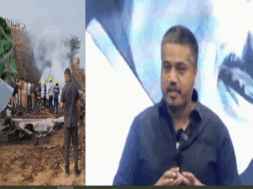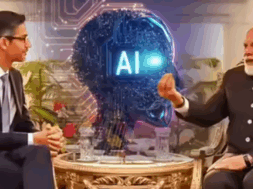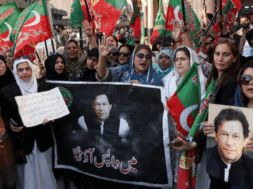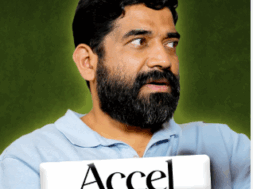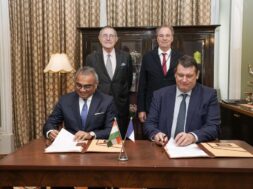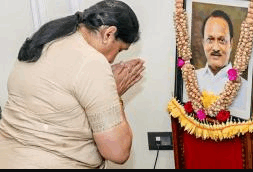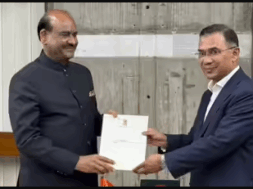
Calcutta High Court Directs CBI to Probe into Financial Irregularities by Sandip Ghosh
Manas Dasgupta
NEW DELHI, Aug 23: The Calcutta High Court on Friday transferred all the cases related to the infamous rape and murder of the trainee postgraduate doctor at the RG Kar Medical College and Hospital in Kolkata to the Central Bureau of Investigation (CBI), which is already probing the murder mystery.
Noting that multiple agencies probing similar facts would lead to delay and inefficiencies, the High Court asked the CBI to also take over the investigation into the alleged “financial irregularities” by the former principal of the RG Kar medical college Sandip Ghosh taking it away from the state government constituted Special Investigation Team (SIT). The petition to hand over the case to the CBI was moved by the former deputy superintendent of R G Kar Hospital, Akhtar Ali, who was claimed to be the whistle-blower in bringing out the financial irregularities committed in running the medical college and hospital during the tenure of Dr Ghosh as the principal.
The agency has been directed to take over the investigation by 10 am on Saturday and directed the SIT to hand over the case diary, CCTV footage and other details to CBI by that time. The West Bengal government had constituted the SIT on August 20 to probe into the alleged financial irregularities by Dr Ghosh starting in January 2021.
Meanwhile, Sanjay Roy, the civic police volunteer accused of the rape and murder of the trainee doctor was produced in Sealdah Court and was sent to 14-day judicial custody. The CBI is also scheduled to conduct polygraph tests on Sandip Ghosh and five others including four doctors in connection with the alleged rape and murder of the postgraduate trainee at the hospital.
The CBI presented Ghosh and the four doctors, who were on duty on August 9, to a special court to seek permission for the lie detection tests. Such tests require both court approval and the suspect’s consent. The Special Court granted the CBI’s request on Thursday. The 5 others include 4 doctors who had dinner with the deceased doctor and 1 civic volunteer.
The Kolkata Police notes reveal that Dr Sandip Ghosh was examined and his statement recorded on August 13, three days after the rape and murder of a trainee doctor on the premises — a detail previously unknown.
The development comes amid the Supreme Court questioning the former principal’s role on August 9, the day of the crime. As the details of the investigation surface, apart from questions about the time lag in filing of the FIR, some new facts have also emerged in the case that has triggered massive outrage.
Four colleagues of the deceased trainee doctor will be put through the lie-detector test because their statements are contradicting each other, sources from CBI have said. These include two first-year postgraduate trainees, a house surgeon and an intern.
Sources in the central agency have said it did not appear that the four doctors were involved in crime, but it wants to check if they played a role in tampering with evidence or were part of a conspiracy. The investigators have also pieced together the sequence of events the night before the doctor was sexually assaulted and killed.
According to Kolkata Police’s timeline of events, one of these doctors saw the victim’s body in the seminar hall around 9.30 am the next day and alerted the authorities. All these four doctors had been questioned by the city police before CBI took over the probe, the timeline reveals.
The CBI has found fingerprints of two of these four doctors in the third-floor seminar room where the body was found. A CCTV camera had captured the house surgeon going from first floor to the third floor that night. The house surgeon has said he went to the third floor at 2.45 am that night. The intern was on the third floor and had spoken to the victim that night, the CBI has found.
According to the sources, the victim and two first-year postgraduate trainees had dinner around midnight. Then they went to the seminar room and watched Neeraj Chopra’s javelin event at the Olympics. Around 2 am, the two colleagues went to the sleep room where doctors on duty rested. The victim stayed back in the seminar room. The intern has said he was in the interns’ room. All these three rooms — the seminar hall, the sleep and the interns’ room are located close to each other on the third floor.
Around 9.30 am, one of the postgraduate trainee doctors, with whom the victim had dinner the night before, went to look for her before the ward rounds began. He found “her body in motionless state from a distance,” the Kolkata Police timeline says. He then informed his colleagues and senior doctors who alerted the hospital authorities.
According to the police timeline, after the body was first spotted at 9.30 am, a doctor on duty confirmed death at 12.44 pm — more than three hours later. When the local police station is informed, they are told that a woman has been found unconscious. Solicitor General Tushar Mehta questioned this in Supreme Court yesterday, saying that a doctor is not needed to know if it is a dead body. “Doctors are informing police that there is an unconscious body.”
The victim’s parents told the Calcutta High Court that they received a call from the hospital at 10.53 am and were informed that their daughter was unwell. Another call, at 11.15 am, informed that she had committed suicide. The Kolkata Police timeline mentions only one call and does not mention suicide at all.
In their petition filed before the high court, the doctor’s parents said they were made to wait for three hours before being allowed to see the body. The victim’s mother has told the media that she begged the hospital authorities to let her see her daughter’s body, but to no avail. But, according to the police timeline, the parents were taken to the seminar hall shortly after they reached the hospital. The West Bengal government’s counsel also told the high court that the parents were not kept waiting.
Both the Calcutta High Court and the Supreme Court have questioned why an unnatural death case was filed and the hospital authorities did not initiate a complaint on the basis of which an FIR could be filed. Chief Justice of India DY Chandrachud yesterday said, “Procedure is a separate issue, but the point remains. What is the reason the FIR is lodged almost 14 hours after the discovery of the (body). The most important thing is that the principal of the college should have come straightaway to the college and directed the filing of the FIR.”
According to the police timeline, the crime scene was secured at 10.30 am – an hour after the body was first spotted. Even after the mob vandalism at the hospital in the early hours of August 15, Kolkata Police asserted that the crime scene was secure. But, the CBI has refuted this. Arguing in the matter in Supreme Court yesterday, Solicitor General Tushar Mehta said, “We entered the probe on the fifth day… The investigation itself was a challenge because the scene of offence was altered. The FIR was registered only after the cremation at 11:45 pm.”

